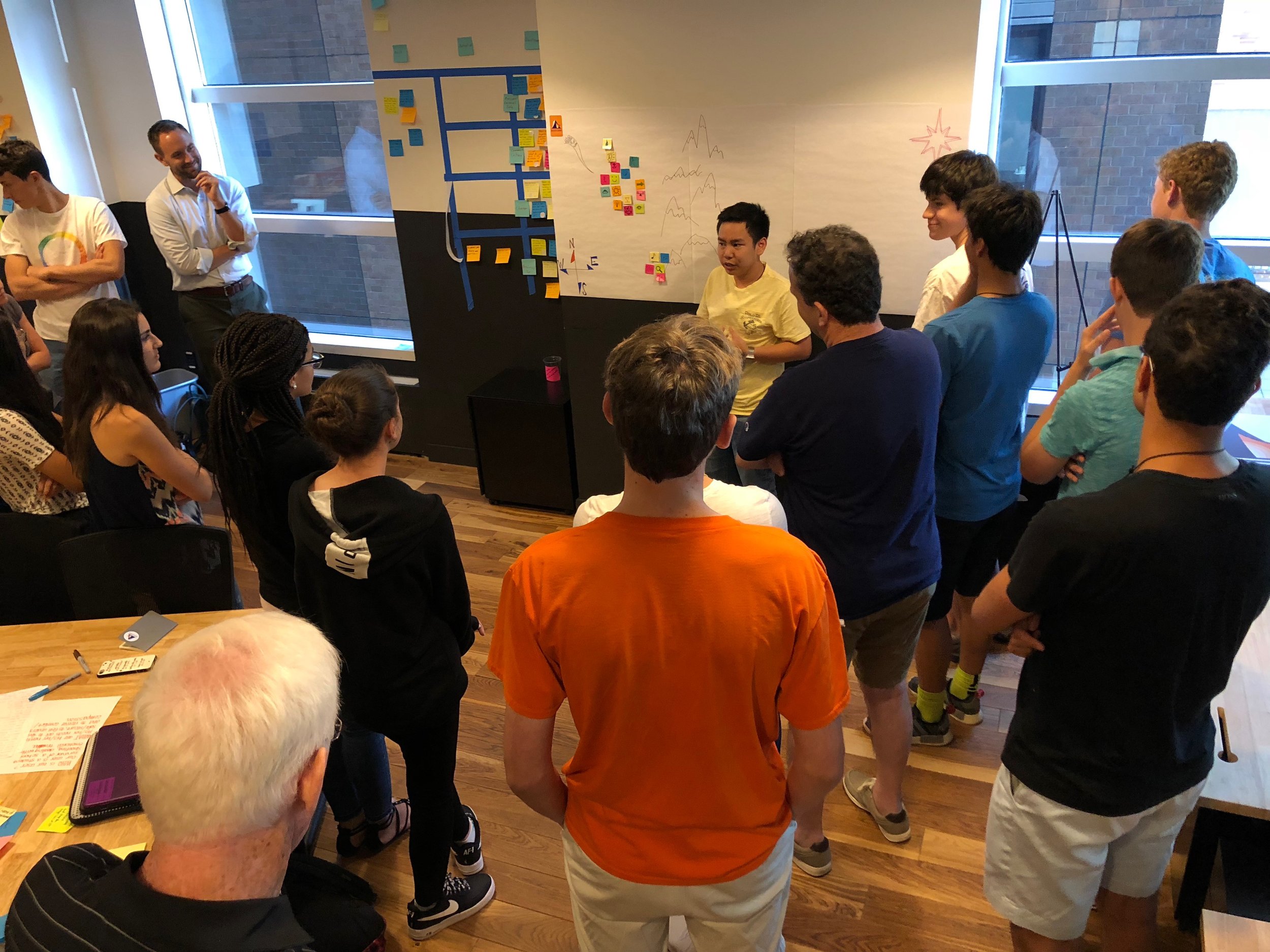Expeditionaries Day 3 of 8: What problem are you really trying to solve?
"Basecamps" and "Scouting Expeditions" provide mental models for students as they journey deeper into the unknown to frame and solve problems they've never seen before.
The first time I facilitated a social entrepreneurship learning experience, one team of students was convinced that Ethiopians had to travel long distances to access water. By the end of day 2, this team had already imagined a variety of possible solutions to delivering water to rural Ethiopia.
There was just one issue: they were trying to solve the wrong kind of problem.
When they began their research the next day, they spoke to a someone at charity: water. "Oh, they have plenty of water," she said. "International aid organizations often bring it right to them. The real problem is keeping all of that water clean."
Fortunately, learning this on Day 3 allowed that student team to reframe their problem from lack of access to sanitation.
Yesterday marked Day 3 of the current Expeditionaries experience, in which teams from Bishop Kearney, Fordham Prep, and Regis have been researching a problem that they think someone at the margins is experiencing.
But what if they are trying to solve the wrong kind of problem?
In fact, it's likely that their first few attempts to define their problem will be off base.
In "school," problem solving tends to be linear (e.g., "Solve this problem or write this essay by following step 1, then step 2..."). By contrast, social impact challenges require iterative problem framing and re-framing.
So how might students develop new "mental muscle memories" for this kind of problem solving?
In Expeditionaries, students create "basecamps," team hubs where they collect questions, hunches, and research about their problem. First they huddle in their basecamp to discuss what they are learning. Then they depart from their basecamp to go on scouting expeditions (i.e., to explore their problem area more deeply). Eventually they return to their basecamp where they share, arrange, and re-arrange the pieces of the problem they are discovering.
The Bishop Kearney team discusses the research each member has discovered during a "scouting expedition."
As they discover new information and insights, the Bishop Kearney team re-arranges their basecamp so that they can ask, "What problem are we really trying to solve?"
That process can be enormously energizing and also enormously frustrating or even anxiety-inducing. No one likes to be lost in the wilderness.
Fortunately, Expeditionaries learn to use two compasses to navigate unknown territory:
- Who is our user? What does she need to do?
- What are my strengths? What are my teammates' strengths? How might we harmonize them to navigate this challenge?
It is no coincidence that Expeditionaries navigate their journey into the unknown by asking questions, not by settling on answers.
During a group reflection, a Regis student talks about getting "unstuck" by asking himself how he might use his natural strengths.
During a group reflection, a Fordham Prep student talks about an experience getting "lost" in the fog of data research. He got himself "unstuck" by asking himself whether the data would help him to understand: "Who is our user? What does he need to do?"
Management guru Peter Drucker famously quipped, "There is nothing quite so useless as doing with great efficiency something that should not be done at all."
In Expeditionaries, students learn that the corrolary is also true: there is nothing quite so useful as figuring out what should be done--that is, what problem we should be trying to solve?
***
Stay tuned for Expeditionaries Day 4 of 8: "Crossing the mountains"
***
Thank you for reading this post from Basecamp's blog, Ed:Future. Do you know someone who would find the Ed:Future blog worthwhile reading? Please let them know that they can subscribe here.





